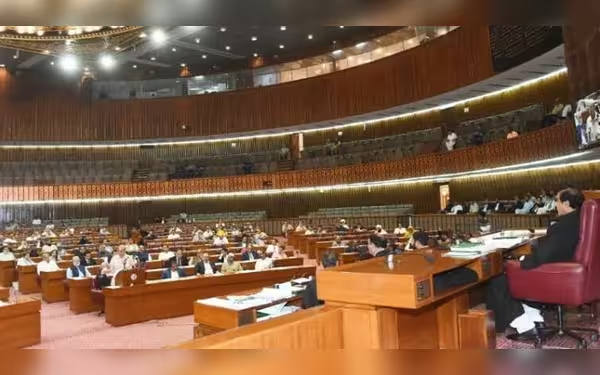Thursday, November 7, 2024 03:37 AM
Government Postpones Bill to Amend Supreme Court Procedures
- Bill to amend Supreme Court procedures postponed in National Assembly.
- Law Minister to present amendments in Senate on Friday.
- Coalition partners struggle to reach consensus on judicial reforms.
 Image Credits: dawn.com
Image Credits: dawn.comThe government of Pakistan postpones a crucial bill to amend Supreme Court procedures amid coalition discussions.
In recent developments, the government of Pakistan has opted to postpone the introduction of a significant bill aimed at amending the Supreme Court Practice and Procedure Act. This decision comes amid ongoing discussions and a lack of consensus among coalition partners. The proposed amendments are intended to address various procedural aspects of the Supreme Court, which plays a crucial role in the country’s judicial system.
The Law Minister, Azam Nazeer Tarar, is expected to present the Supreme Court (Practice and Procedure) (Amendment) Ordinance, 2024, in the Senate on Friday. This move indicates that while the bill's introduction in the National Assembly has been deferred, the government is still keen on advancing the legislative process in the Senate. The agenda released by the Senate Secretariat confirms this upcoming presentation.
The Supreme Court Practice and Procedure Act is vital as it governs how the Supreme Court operates, including how cases are heard and decided. Any amendments to this act could significantly impact the efficiency and effectiveness of the judicial process in Pakistan. Therefore, the discussions surrounding this bill are of great importance, not only to lawmakers but also to the general public who rely on the judicial system for justice.
It is essential for the government to foster a collaborative environment among coalition partners to reach a consensus on such critical legislation. The judicial system's integrity and functionality depend on clear and agreed-upon procedures. As the situation unfolds, it will be interesting to see how the government navigates these challenges and whether they can unite their coalition to push forward with the necessary reforms.
The deferral of the bill highlights the complexities of governance in a coalition setup. It serves as a reminder of the importance of dialogue and cooperation in the legislative process. As citizens, it is crucial to stay informed about these developments, as they directly affect the judicial landscape and, ultimately, the rule of law in Pakistan.













